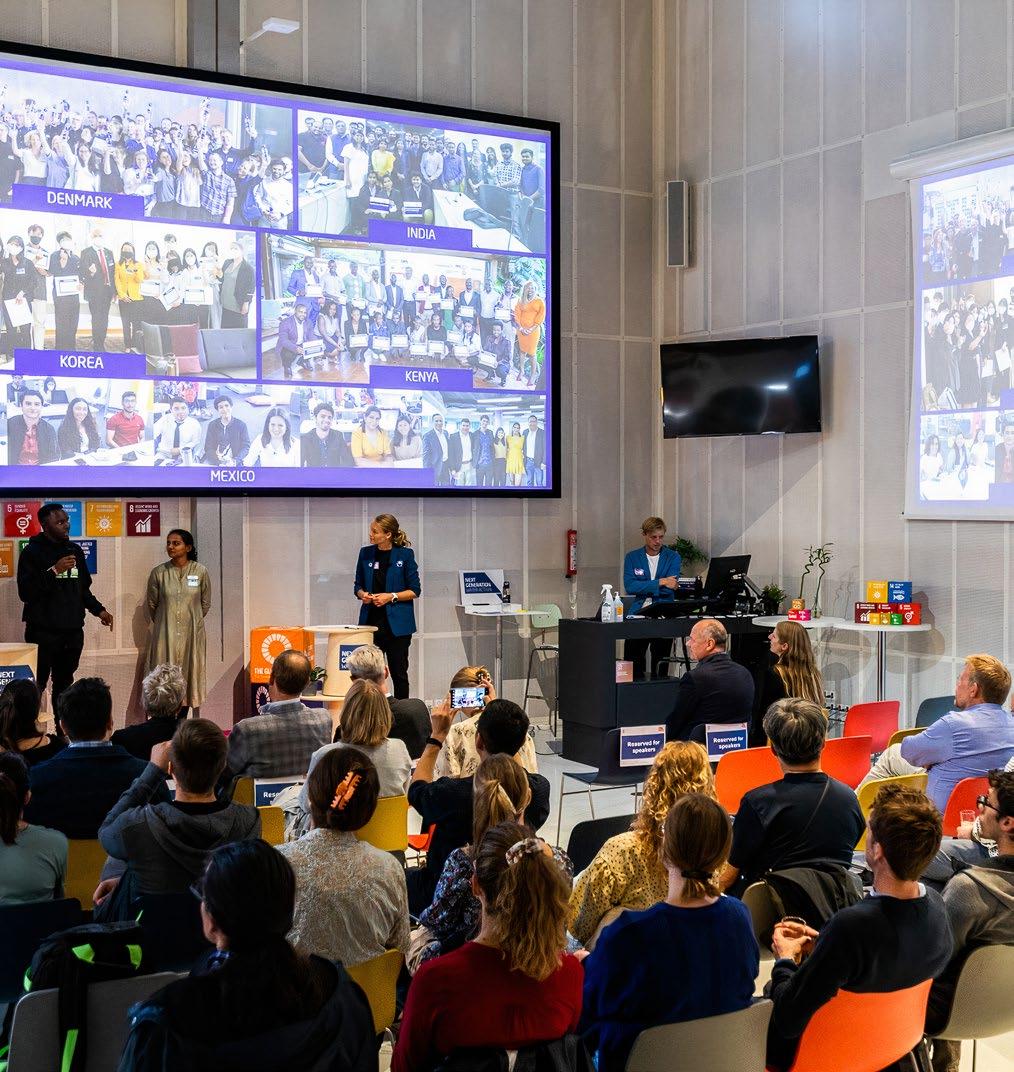
2 minute read
Research practice and research dissemination
Ambition
DTU wants to create a culture among students and staff that is anchored in research integrity and academic freedom and that promotes good research and dissemination practices. This means that honesty, transparency, and accountability are a basic premise for all aspects of DTU’s research activities. It also means that the requirements of international conventions and ethical legislation are implemented to ensure the integrity of the research.
DTU encourages its students and researchers to make their knowledge available to, and to qualify and participate in, the public debate, preferably with reference to DTU. On the other hand, DTU finds it natural that no reference is made to the University when the debate is based on the exchange of personal and private views.
Baseline and goals
DTU’s ambition is for its students and staff to be ambassadors for research integrity and academic freedom.
DTU has a responsibility to support this ambition and culture through competence building and information about good research, administrative, and dissemination practices. Researchers must experience that it is safe to participate in the public debate with recognition of their academic competency, professionalism, and objectivity.
Objectives
2023: DTU’s students, staff, and managers will have strengthened their knowledge of good research practice and research dissemination.
2025: DTU will have strengthened its reputation as a university that contributes to high standards in good research practice and research dissemination.
Goal no. Goal Baseline 2025 Comments
Good scientific practice
32 DTU is increasing its focus on ensuring a strong research culture based on principles of good scientific practice.
2021: Initiatives include mandatory courses for PhD students and supervisors where the topic of good scientific practice is addressed. In addition, e-learning modules on the topic are prepared to support the courses.
Increased focus
There will be follow-up how the organization adopts the e-learning modules as a supplement to existing courses.
33 DTU will strengthen its actions and initiatives in research security, see the Committee on Guidelines for International Cooperation (URIS) under the Ministry of Higher Education and Science.
2021: DTU is aware of the area and focuses on establishing strengthened and uniform procedures in this respect.
Strengthened actions and initiatives
The URIS report was published in May 2022, and DTU participated actively in the committee work.
Table continues on next page
Good scientific practice (continued)
34 DTU students are subject to DTU’s code of honour for examinations and other academic activity.
2021: 216 students reported for cheating.
In the period 2017-2019 to 2021, there was an increase of 65 per cent in the number of reported cases of exam cheating.
Less cheating
The general increase is attributed to increased attention to cheating due to the introduction of the code from the 2017-2018 academic year. During the COVID-19 lockdown in 2020, there was a large increase, which is mainly attributed to the conversion of written on-site exams to online home exams.
Dialogue with the outside world
35 DTU contributes to the public debate with research-based knowledge.
DTU publishes the profile magazine Dynamo four times a year and supports a number of digital platforms that provide information about DTU’s research results and their importance to society.
Initiatives 2023 Management and organization
More debate DTU will focus its communication around themes related to current agendas and create strong stories that engage and activate the recipients.
A Plagiarism screening: DTU has made the plagiarism screening tool iThenticate available to its researchers in order to prevent plagiarism in scientific work.
B Risk assessment international collaborations: Establishment of a new interdisciplinary security organization that creates internal organization and processes aimed at reducing ethical, financial, and security risks in connection with international research and innovation collaborations.
C Export control and Nagoya Protocol: Preparation of a comprehensive overview of compliance requirements in the field of research and innovation, with particular focus on strengthening the work with export control regulation and the Nagoya Protocol.




